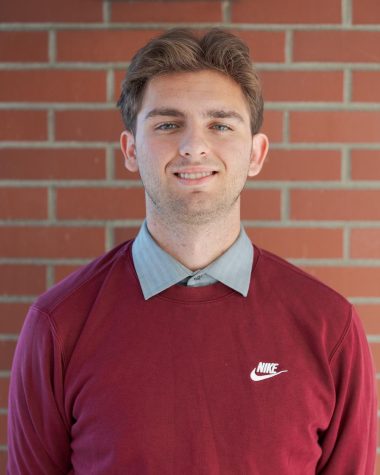Double your money, double the aid
Six local Jewish organizations come together, help people fleeing Ukraine
April 6, 2022

In response to the ongoing Ukraine crisis, six Seattle-based Jewish organizations have come together to raise money for refugees fleeing the war-torn country.
The Jewish Family Service, The Jewish Federation of Greater Seattle, Hillel UW, Kline Gallard, Holocaust Center for Humanity and the Stroum Jewish Community have joined forces to create the Seattle Jewish Community Ukraine Challenge.
The challenge has already raised $1.2 million through 28 different philanthropists across Western Washington. The goal is to match that total through donations from the broader Seattle community, to ultimately raise a total of $2.4 million.
According to Amy Lavin, the chief executive officer of the Stroum Community Center, helping refugees is something deeply ingrained in the Jewish thought process.
“The idea of supporting refugees is absolutely core to Jewish values, experience, and history,” Lavin explained. “Sadly, we have been in that situation as a people many times throughout history, so Jews very much take to heart the need to support others in times of crisis when they are being pushed out of their homes.”
Donors can choose to have their funds allocated to one of two aid routes: settling refugees locally in Seattle or helping refugees overseas. The Jewish Family Service will help with settling refugees close to home, while the Jewish Federation of North America (JFNA) will be in charge of allocating the funds overseas.
If the $1.2 million goal is not met, then donors will have the option of taking back their money. If the goal is met, money designated for settling refugees locally will be allocated with no distinction between religious affiliation or ethnic background. Money designated for use overseas will be primarily used to help Jewish refugees.
JFNA has a multitude of different outlets overseas that it can distribute funds to. The two largest organizations JFNA supports are The Jewish Agency for Israel (JAFI) and the Joint Distribution Committee (JDC).
JAFI will be focused on helping Jewish refugees of the Ukraine crisis make “Aliyah,” which is the Hebrew word for the Jewish immigration to Israel. Meanwhile, JDC operates in Ukraine, supplying food, medication and medical training to Ukrainian civilians and hospitals.
Nancy Greer is the CEO of the Jewish Federation of Greater Seattle, which is the local chapter of JFNA. She is currently overseeing a large portion of the Seattle Jewish Ukraine Challenge. She explained how JFNA decides which organizations receive donated money.
“JFNA is really looking at what are the needs of these large organizations or small and where the resources and the JFNA allocated dollars make the greatest impact,” Greer explained. “Every week, they [JFNA] may be allocating $5-$10 million at a time and it really depends on what the needs are, but also, resources those organizations have access to. They do all of the diligence to make sure wherever the funds are going they are being used appropriately.”
The Jewish Family Service and the Jewish Federation of Greater Seattle were the two original organizations at the outset of the challenge. They are also the two organizations overseeing the logistics of the challenge right now.
“It’s something we can do. You wake up every morning and you see the news and it’s so heartbreaking, and what I can do is invest my time, effort and energy to hopefully raise close to $2.5 million that will save a whole bunch of lives,” Greer said. “When in my life have I ever had that opportunity?”
As the war drags on and millions of more refugees flee Ukraine, the architects and organizers of the Seattle Jewish Community Ukraine Challenge are hoping to expand their outreach and fundraising efforts to continue providing aid.
The challenge has already raised over $350,000 in matching funds and is hoping this number will continue to grow in the second round of the challenge which could feature up to 107 Jewish organizations from all across Washington.
Amy Lavin hopes this kind of far-reaching community support will galvanize the community and help make positive change.
“We all feel really helpless watching this happen overseas,” Lavin said. “Democracy and freedom are fragile, and recognizing if we were in a similar position, life as we know it would be instantly changed, and the uncertainty, fear, loneliness is something I never want to imagine. Our ability to ease that for others drives a lot of us.”


























































































